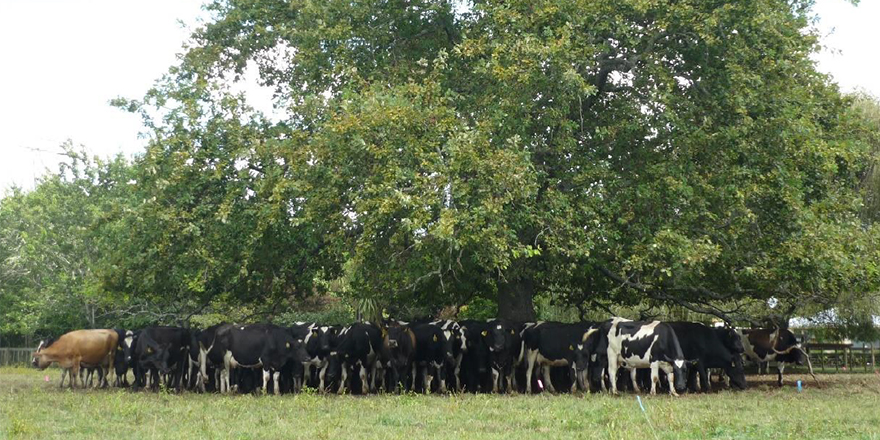Executive summary
New Zealand’s increasing property prices, corporatisation of farming, improved communication and transportation infrastructure, coupled with continuously improving farm practice and rapid disruptive technological innovation, creates both increased need and opportunity for rural families to engage in on- and off-farm work concurrently. Modern work enabled by the aforementioned advancements, particularly the rate of digital technology change, is becoming increasingly accessible around the clock, which results in a progressively blurred line between work life and home life, with the concept of a work life balance under significant challenge.
This challenge is exacerbated when farming households are engaged in pluriactivity. Pluriactivity is the situation when family members invest time off-farm, which is not a temporary situation responding to changed circumstance or shock, but rather a permanent and accepted feature of farming societies globally, that is driven by a range of diverse factors, including household, farm and spatial drivers.
The methodology employed for this research was a combination of semi-structured interviews and a detailed literature review. All interview participants were involved in both on- and off-farm work concurrently, and had professional or highly skilled off-farm employment. With the exception of one respondent, interviewees were farming sheep or beef, or grazing dairy stock, and all participants took an active/hands – on role in the farm business.
The literature research showed a strong theme that “work life balance is bunk,” and that those engaged in on- and off-farm work concurrently should rather seek “work life harmony.” Harmony was preferred on the basis that it does not create the same inherent sense of trade-offs or the over-prioritising of work in comparison to ‘life.’ Harmony was seen as a better construct to break down the element of “life” into categories of family, community and self. Taking a more granular approach to life allowed individuals to bring together a number of elements in a be spoke manner to achieve success. Respondents conveyed that work life harmony had a temporal component, i.e. the importance of work and life (self, community and family) would change over time.
The research identified that to achieve work life harmony there are three key success factors and one key change in mental state that can facilitate success, they are as follows:
1. Communication and the importance of family
A success factor identified in the research was that of placing importance on relationships with loved ones when working both on- and off-farm concurrently. A consistent, although reluctant, interview response was “happy wife is a happy life” and that you can’t participate in pluriactivity alone. Family team work was supported by a focus on communication, with application of a ‘business communication’ rather than ‘family communication’ for managing multiple work interests being key to success. Family communication involved conversations about the farm business being a planned and deliberate action, rather than an “over the fence” or “over breakfast” conversation. The need for “doing the business” was contrasted by a requirement to know when to “box off” the various work components, so as to prevent either the family farming business or the off-farm work becoming an encroachment on the important business of family.
2. Visioning: know the end for a number of games
The importance of having a documented vision was another success factor to emerge from the research, and was a key contributor to the achievement of better work life harmony. Further, documenting the vision resulted in individuals having a clearer focus on what was important and what the end point looked like, while providing the ability to monitor progress towards time-bound, regularly reviewed goals.
It was also clearly identified that for a vision to result in increased work life harmony the goals needed to be as strategic and all-encompassing as possible, with visioning not limited to the farm business, corporate career or family goals individually, but broader in considering either the “Five F’s: family, fitness, farm, finance, fun” or Freidman’s ‘Four Circles’ of work, family, community and self. The focus of any vision needs to be strategic with a range of operational planning documents, such as 1 year and 5 year farm plans and personal development plans sitting beneath a holistic and all-encompassing vision that establishes the basis, or ‘the why’, upon which to make important decisions.
3. Simplified systems, technology and creativity
A final success factor that came through consistently was deliberate simplification of on-farm systems, through either altering stocking rates, changing stock class or outsourcing tasks. In all situations the aim was to make the on-farm work easier given significant time pressures, and the additional income coming from the off-farm activity reducing the absolute need to be achieving maximum farm efficiency. While all respondents were very busy and often managed systems to reduce the number of mundane tasks, the research and literature suggested that they should not be eliminated altogether, particularly when engaged in pluriactivity, with simple monotonous tasks often being the time “eureka” moments occur, so the value of “tractor time” for creative or entrepreneurial thinking should not be under-estimated.
Building upon these three success factors, a key change in mental state was identified with a focus on “being” rather than “doing” key for those successful in pluriactivity. To embrace these states of being there is a requirement to take on the following:
- Be deliberate: prioritise family as a non-negotiable time commitment – make this component equivalent to your most important appointment in the other spheres of your life.
- Be pragmatic – simplify your farm system to make it work for your individual situation
- Be holistic and strategic: develop a vision, include four circle granularity Be an individual
- Be present: avoid multi-tasking – aim for integration but restrict multi-tasking to where it does not affect the primary task.
- Be realistic, be mindful – understand that you cannot achieve all of your life goals at once, there will be a requirement for some priorities to be fulfilled sequentially rather than concurrently
- Be a ‘geek’ – embrace technology as appropriate to make your life more harmonious
Phil Weir



